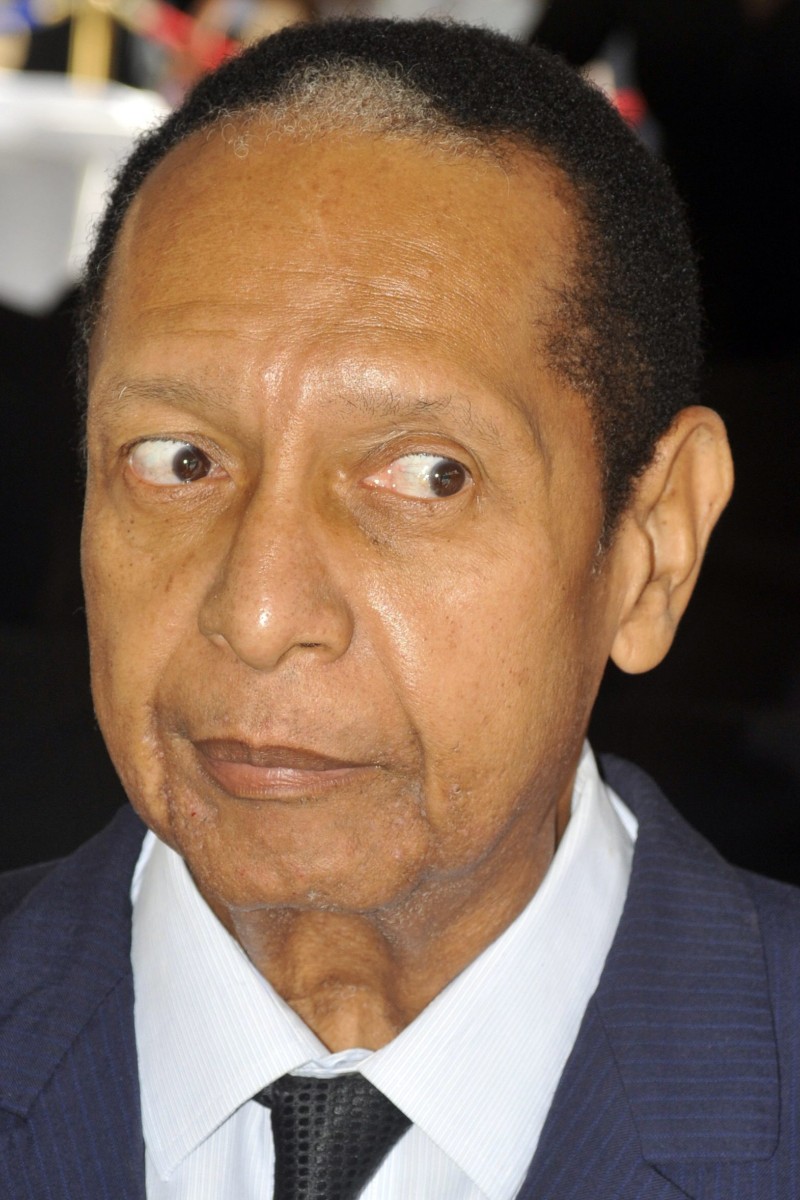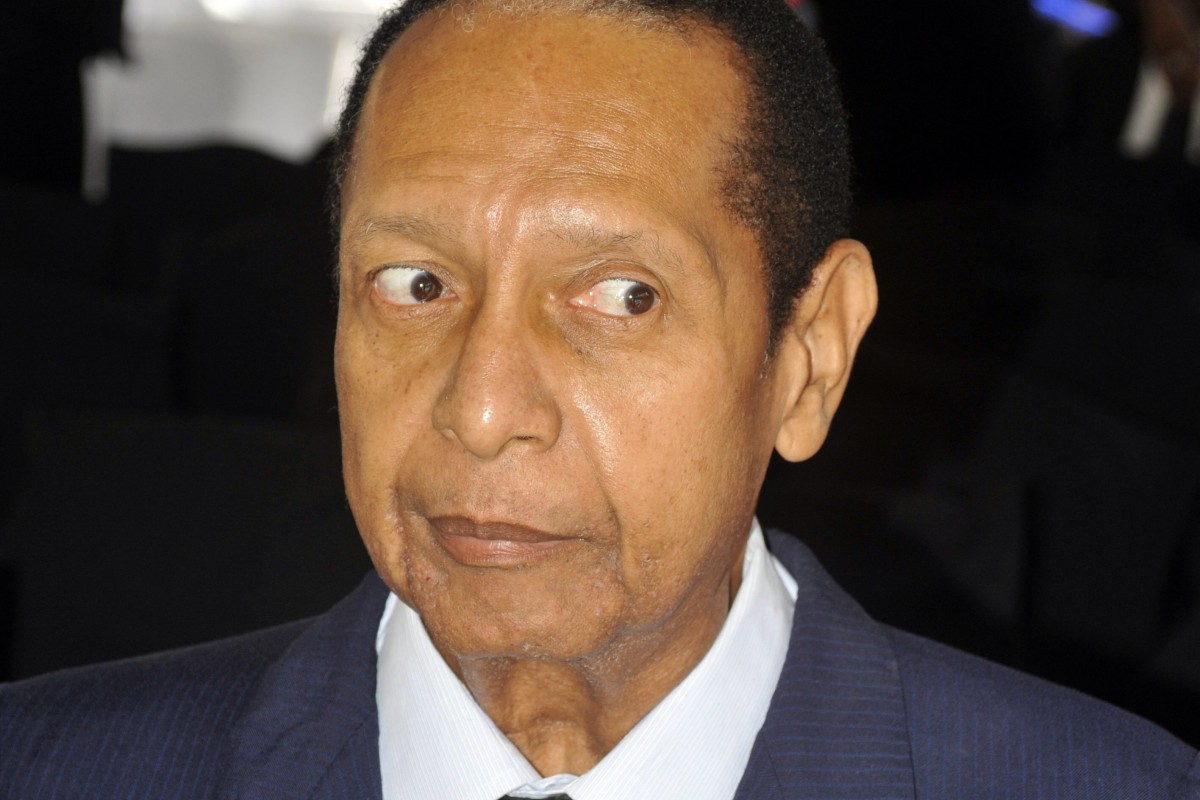
Haitian dictator Jean-Claude Duvalier, known as Baby Doc, dies
Jean-Claude Duvalier stepped up to rule Haiti when he was 19. He followed in the footsteps of his brutal father, this is his story:
 Former Haitian dictator Jean-Claude Duvalier, known as Baby Doc
Former Haitian dictator Jean-Claude Duvalier, known as Baby DocJean-Claude Duvalier, who died of a heart attack on October 4, 2014, became the unwilling dictator of Haiti (and the world’s youngest president) in 1971, when he was only 19.
He seemed to be a sad and sometimes comic man for most of his life. He was manoeuvre d by aides and bossed about by first his mother, Simone, and elder sister, Marie-Denise (who demanded to be president in his place), and then his hughty wife. In his early years, when he didn't have much power, he privately threatened to quit and flee, but was stopped.
Laughing foreign reporters called him "Baby Doc", the son of his terrible, President Francois "Papa Doc" Duvalier, who had terrorised Haiti for 15 years until dying peacefully in bed. The name stuck and embarassment was ensured.
Jean-Claude was born in Port-au-Prince, the capital of Haiti. When he was at school, someone tried to kidnap him and his sister. The fat, dull and stupid Jean-Claude was a bad student and only came to world attention again in 1971. His father was sick, and named Jean-Claude as the country’s next "president-for-life" and had him approved in a rigged vote (2,391,916 to one, with two abstentions). "This is the young man you have been waiting for," his handlers bravely told Haiti’s starving citizens. They were trying to keep the murderous system his father had built going.
"My father made the political revolution, I will make the economic revolution," they told him to say. The new regime would be "Duvalierism reviewed, corrected and broadened" and the doctrine "Jean-Claudism". It was just talk, and Haitians were still without any political freedom and Latin America’s poorest citizens. The young president stood by as others killed and thieved in his name.
But things slowly began to change and the economy calmed down a bit, as tens of thousands of "offshore" factory jobs were created. Provincial roads were paved for the first time, mostly paid for by the US. The US was still keen to use the weak government against communist Cuba next door. Spurred by economic refugees ("boat people") who were fleeing to the US from the mid-1970s, and helped by power-struggles within the government, opposition voices began to be heard and tolerated.
After five years of timid media opposition, Duvalier made a serious and eventually fatal political error in 1980. He married a woman from the light-skinned upper-class whose members his father had killed, arrested or otherwise tamed. When people complained about the extravagant ceremony - ominously held as a thunderstorm raged and turned the capital into a sea of mud - dozens of journalists and politicians were arrested and deported. The "liberal" years were over. These had included legalisation of the first small political parties and rise of a popular radio station run by Catholic liberation theologians. Pope John Paul II even visited Haiti in 1983, coldly shaking Duvalier’s hand and warning that "things must change here".
Duvalier's new wife, Michele Bennett, threw her mother-in-law, still the powerful official "first lady," out of the presidential palace, and set making trouble with, well, everyone.
Duvalier's privat police force, the Tontons Macoutes, was especially angry about the marriage. Papa Doc had married into the same class, but Duvalier Jr allowed his wife to run government meetings and make and unmake ministers.
Haitians were outraged by her shopping sprees in Paris. The deepening poverty and corruption was being made public by foreign media and the church’s Radio Soleil.
Food riots and looting broke out in 1984 and the government’s shooting of four schoolchildren in 1985 sealed the dictatorship’s fate. Haitians were no longer afraid. Duvalier quickly offered political reforms, but had already lost control of the provinces.
Duvalier declared himself in a broadcast "still as strong as a monkey's tail" and a government statement said that "peace reigns throughout the country".
The couple fled before dawn on 7 February 1986 (after a last champagne party at the palace). Duvalier drove their Mercedes to the airport and a pre-arranged US government flight took them to Paris, where the French government had been persuaded by Washington to accept them.
Trailing Duvalier’s mother with them, they lived in expensive hotels and villas on the French Riviera, drawing on the US$100m or so they had stolen from the country.
Eventually Michele left to live in Paris, taking with her their two children, Nico and Anya, and in 1993 they divorced. Duvalier's mother died, and, in his darkest days, relieved of most of his money, he lived for a time in a shed at the bottom of his father-in-law's Paris garden.
He found a new woman, again an upper-class Haitian, and she and people who supported his family in Haiti encouraged him to try for a political comeback. But despite some people wanting Duvalier-era "peace" amid the chaos and killings that had followed his overthrow, his half-hearted statements came to nothing.
And then he got lucky, with the US-arranged election of the singer Michel "Sweet Micky" Martelly, long a quiet Duvalier supporter, as president in 2011. After years of threats that he would be arrested if he tried to return, Duvalier was now able to go back to Haiti without any real risk. He made no attempt to return to power and lamely apologised for any hurt he said he might have caused. He joined Martelly on the platform on several public occasions.
Formal legal procedures against him were begun, but a deeply corrupt judiciary ensured that he rarely appeared in court and never went to prison for the killings and theft he presided over. Almost to the end, he enjoyed the capital’s luxury restaurants and night-life.
He is survived by Nico and Anya.
